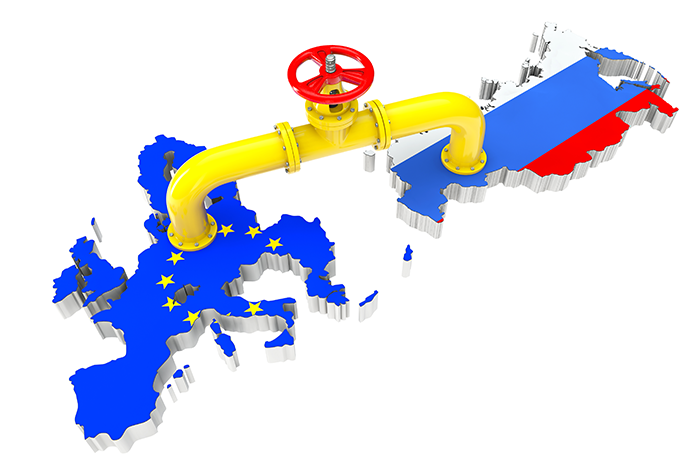"The first step should be the termination of the Paks contract."
Gergely Karácsony thinks that solidarity among Visegrad countries is so crucial that Hungary should follow the example of other member states and expel Russian diplomats for the explosions in Vrbetice. Besides Paks, he would stop the Budapest – Belgrade railway and the Fudan Budapest campus projects if he were to form the next Hungarian government in 2022. He agrees that the EU needs its own armed forces but without creating duplications with NATO. If there is any issue in which the EU should make decisions unanimously, then the army is one. Interview series, part six.
Interviews with other candidates:
- András Fekete-Győr: “Huawei is such a large national security threat that is simply not offset by the low price of its 5G network”
- Péter Jakab: "The precondition of a common EU foreign policy is that each European citizen could identify themselves with it."
- József Pálinkás: "Today, not a single EU member state can represent its interests alone"
- Gergely Karácsony: "The first step should be the termination of the Paks contract."
The original responses in Hungarian can be found at the following links:
- Dobrev Klára: „Megerősíteném az EU és Magyarország világpolitikai súlyát”
- Fekete-Győr András: „A Huawei olyan nemzetbiztonsági kockázatot jelent, amit egyszerűen nem ellensúlyoz az általuk kiépített 5G-rendszer alacsony ára”
- Pálinkás József: „Ma egyetlen EU-tagállam sem elég erős ahhoz, hogy az érdekeit egyedül hatékonyan tudja képviselni”
- Jakab Péter: „A közös uniós külpolitika feltétele, hogy minden európai polgár ugyanolyan mértékben magáénak érezze”
- Márki-Zay Péter: „Az Osztrák-Magyar Monarchia már 1867-ben eljutott a közös külügy, hadügy, pénzügy koncepciójáig, elkeserítő, hogy 150 évvel később az európai integráció még nem tart itt"
- Karácsony Gergely: „Első lépésként a paksi szerződést kell felmondani”

Recent events have shown that the European Union (EU) often moved as a lame duck on the foreign policy scene, as unanimous decision-making in the field means a single member state's rejection is enough to block an EU statement or policy decision. The European Parliament (EP) called for moving towards qualified majority voting in the field of foreign policy – at least in human rights cases – multiple times. Would your government support making EU foreign policy decisions with qualified majority voting?
The EU is an alliance of countries that all have their own rich and individual historical and cultural traditions, and even divergent national and economic interests, but they still share the Western world's fundamental values and cooperate to realize these values. In the course of the entire history of European integration, the EU's decision-making procedures developed in every area due to the compromises of the member states by reconciling seemingly conflicting demands.
Foreign policy is a conflictual issue within European integration because it is of central importance to the sovereignty of every state, EU members included. However, we should not forget that for the smaller and medium-sized EU member states, the common foreign policy creates opportunities, too: a country with ten million inhabitants like Hungary is typically not a major actor in world politics, while the EU as a whole can be. Therefore, the joint action of the member states as part of a common EU foreign policy can allow us to represent Hungarian interests more powerfully.
The Treaty on the Functioning of the European Union allows that the member states shift to qualified majority decision-making in specific foreign policy issues. In these cases, the founding treaty permits vetoing only based only on national interests of vital importance. In my view, it is in Hungary's interest that the EU becomes a powerful actor in world politics. Qualified majority decision-making in cases that concern the EU's fundamental values is a precondition for that.

Would your government support the EU strengthening, expanding sectoral economic sanctions against Russia? Why or why not?
Sectorial economic sanctions are not self-serving but merely the means of convincing Russia to respect international laws like the territorial integrity of other states and fundamental human rights. Therefore, we need to examine whether sanctions in place have helped to achieve these goals or not.
Do you believe that Hungary should expel Russian diplomats to offer its solidarity to Czechia because of the explosion in Vrbetice? If not expelling diplomats, what would be the right "answer"?
I think that solidarity among Visegrad countries is so crucial that Hungary should follow the example of other member states and expel Russian diplomats in response to the intelligence activity that seriously violated European and Czech sovereignty.
Would your government stop the construction of the two new nuclear blocks in Paks? How would you replace the energy production of these blocks?
The Paks nuclear plant expansion is appallingly expansive, exposes Hungary both financially and energetically to autocratic Russia. Hungary's key interest is to terminate the contract as soon as possible and free Hungary from this trap. Unfortunately, we have been going in the wrong direction for seven years instead of spending the money on much cheaper renewable energy and energy efficacy projects that would support the Hungarian economy and create domestic jobs. By now, this has proven to be the future of energetics, and we are missing this transition. Several studies attested in Hungary that we could meet the country's energy needs at a lower price if we concentrated on renewables and energy efficacy by the mid-2030s when the current Paks blocks will have to be shut down. Our Green Hungary – Energy Roadmap presents how this can be achieved.

What are the solutions for Hungary's heavy dependence on Russian energy?
The first step should be the termination of the Paks contract because it reinforces our dependence. Second, we should launch a comprehensive building reconstruction program using the several thousand billion Forints available for Hungary in the Recovery Plan and the 2021-2027 budget of the EU. This could decrease the heating gas demand of the population by 40-50%, which constitutes a significant part of the Russian gas import. At the same time, investment in renewable energy production could be a substitute for the usage of Russian import gas in power plants to a large extent. Finally, the complex decarbonization of transport, the increase of public transport’s popularity, subsidizing alternative drivetrains (electricity, hydrogen, etc.) could considerably decrease fuel imports. Green solutions generally strengthen the energetic autonomy of the country, keep invested capital here, provide business opportunities for domestic ventures, and create jobs for Hungarians.
Would your government support EU sanctions against further Chinese officials for their role in human rights abuses against the Uyghurs or anti-democratic actions in Hong Kong? Why or why not?
Generally speaking, I support the EU imposing economic sanctions against officials who committed international law violations, if necessary. However, to my knowledge, targeted sanctions against these people are not on the agenda at the moment.

Do you believe that Chinese companies, like Huawei, should be banned from the development of Hungary's 5G network even if it would raise construction costs?
Yes, I do believe that this is the correct response because of the security risks. Unsurprisingly, more and more European governments like Czechia, Romania, and the UK did so. Moreover, the Chinese enterprises and suppliers participating in the construction of telecommunication networks are closely connected to the Chinese state and even directly to the Chinese military. So, unquestionably, the Chinese presence in such critical infrastructures would constitute a significant risk to national security.
Would your government put an end to the renovation of the Budapest-Belgrade railway and the construction of the Fudan University campus in Budapest? What would you spend the money allocated to these projects on?
I am firmly committed to the development of regional rail transport. Still, the path of the Budapest – Belgrade railway was not chosen on rational grounds, and it avoids every larger Hungarian city. I do not support it because we would realize it from a Chinese loan with a questionable background. Just think of the worrying example of Montenegro concerning the highway reconstruction using a Chinese loan. Montenegro asked for the EU's help to get rid of the burden of this loan. My position about the Fudan Budapest campus is well known: I oppose the construction of an elite Chinese university on Hungarian taxpayers’ money. Therefore, I would halt this project it in its current form. The money thus saved could be spent on the development of Hungarian public and higher education and the modernization of Hungarian rail transport.
China and the EU agreed on an investment agreement in December 2020, which could help European companies on the Chinese market. This needs to be ratified by the EP, but it has not done so due to Chinese counter-sanctions against some MEPs and human rights concerns. Do you believe that the ratification of this treaty is in Hungary's interest? Do you think that the human rights situation needs to be taken into account when developing the EU's relationship with China? If yes, can you explain how?
Yes, I believe that human rights issues should be considered in commercial and investment agreements and other relations. However, it is essential to balance values and interests, and not seeing our international relations as mere business transactions, not even if we admit the importance of our economic-commercial ties with China. In this sense, I think it is justified postponing the investment agreement, while developing economic-commercial relations could proceed in a restricted form.

Do you believe that disinformation – especially the manipulative rhetoric spread by Moscow and Beijing – constitutes a national security threat? What steps would your government take on the national and EU level to fight disinformation?
It constitutes a clear and severe international risk. Disinformation subverts the very foundations of our democracies, harms social cohesion, damages the cohesive force of society, incites hate, drives a wedge between us, and influences domestic parliamentary elections according to the interests of adversarial actors. I take it to be of vital importance to confront these challenges. Both at the EU and national levels, I think it is essential to spend considerable resources on public information and communication campaigns. It was the Hungarian government's anti-migration hate campaign that clearly demonstrated that big-budget information campaigns work. So, we have to tell our compatriots that they should critically select their sources of information, get information from diverse sources, and do not believe the lies spread by bombastic, dubious internet sources or Russian and Chinese state propaganda. The Hungarian government does precisely the opposite of this when spreading Russian disinformation on public money under the guise of public benefit information. It would be the basic task of every government to promote calm, unbiased, and complex social debate and confront purposeful anti-democratic manipulation.
Fourteen EU member states are proposing to create a 5000-man-strong, well-equipped quick response military force. Hungary, based on media information, is not among the fourteen. Would you support creating such a force and potentially deploying it even to conflict zones? Do you believe that the deployment should take place after a unanimous agreement or would qualified majority voting be enough?
I agree that the EU should have its own military and develop ‘hard power’ capabilities to pursue its common foreign and security policy interests. This is justified by the new type of security challenges as well as the demand that the EU should be able to contribute in its own right to the protection of peace and security in Europe's neighborhood. These new structures must not create duplications with NATO but complement the alliance. However, the deployment of the EU military must be decided unanimously, in my opinion.
It was revealed recently that Hungary is not planning to withdraw the HUF 3300 billion allocated to it in preferential loans in the frames of the Recovery and Resilience Facility, although it could access it any time until 2023. Would your government take these loans? If yes, would you use the entire credit line? What would you spend these resources on?
I think it is a grave mistake and a wasted historic opportunity that the Hungarian government would give up this excellent and vast development resource parallelly to forcing the country into a debt trap of incomparable, less favorable Russian and Chinese loans. We have to seize the opportunity of this loan and spend it on large-scale climate protection and energetic green developments, social justice policies, sustainable economic development as well as digitalization, and the modernization of public services. If the EU accepts Hungary's Recovery and Resilience Plan, the first task of the new government will be to renegotiate it.
The EU took loans for the first time with joint member state responsibility for the debt. Some are on the opinion that this should become more than a one-time scheme, which is supported – for instance – by the Greek and Spanish prime ministers. Northern member states and Germany reject this idea. Which side should Hungary be on in this debate?
I am glad that the taboo concerning issuing a joint EU bond was broken due to the pandemic-induced economic crisis. The EU took a significant step forward in the spirit of member states' solidarity. The common and favorable loan can be an essential instrument in leveling the disadvantages of the less developed and competitive member states. It can contribute to eliminating the imbalances within the EU coming from the common market and the monetary union, as we saw in the case of Greece. Furthermore, this creates excellent conditions for resource-poor member states like Hungary to modernize their large systems to reconstruct them in a more sustainable form. I understand the concerns of Germany and the rich Northern countries and I think that these can be best addressed by assigning the strictest possible control mechanisms to the use of the EU loan.
Which policy areas are the ones where you believe closer EU integration is necessary, and what are those where member states should hold the competencies?
This question could be best answered by identifying the policy areas in which further integration would prove to be more effective, lead to better public services and better outcomes for our compatriots and all European citizens. Based on the experiences of the global pandemic, I would back the extension of the EU's authority in healthcare, especially in public healthcare crises. If there are cross-border dangers, then a pandemic is obviously one of them. The EU seemed so sluggish at certain stages of pandemic response largely because it had to find a compromise among 27 member states due to member states' competencies in the field. I think it is also very important to create a social union. Member states’ business actors compete under equal conditions, while the level of social protection provided by them is radically different. I welcome the efforts to foster EU-level economic governance like the consultation on a common European minimal wage, creating a European banking union, or the joint EU level loan. Finally, I would mention tax policy: although it must remain a national competence, certain minimal requirements should be set at the EU level, especially because multinational companies should take a larger share in public burdens and not enjoy tax havens' advantages provided by certain member states.
Our interview with Gergely Karácsony is the 6th in the series. We sent our questions to all prime ministerial candidates partaking in the opposition primaries to know more about their foreign policy views, especially in the European dimension. We are publishing the answers in the order of receiving then after minimal editing.
This is the English translation of the original, Hungarian-language interview.
Political Capital and its partners from Bulgaria, Czechia, Poland, Austria, Slovakia and Romania are researching value-based foreign policy preferences and the prevalence of authoritarian influence in the EU institutional system with the support of National Endowment for Democracy.

